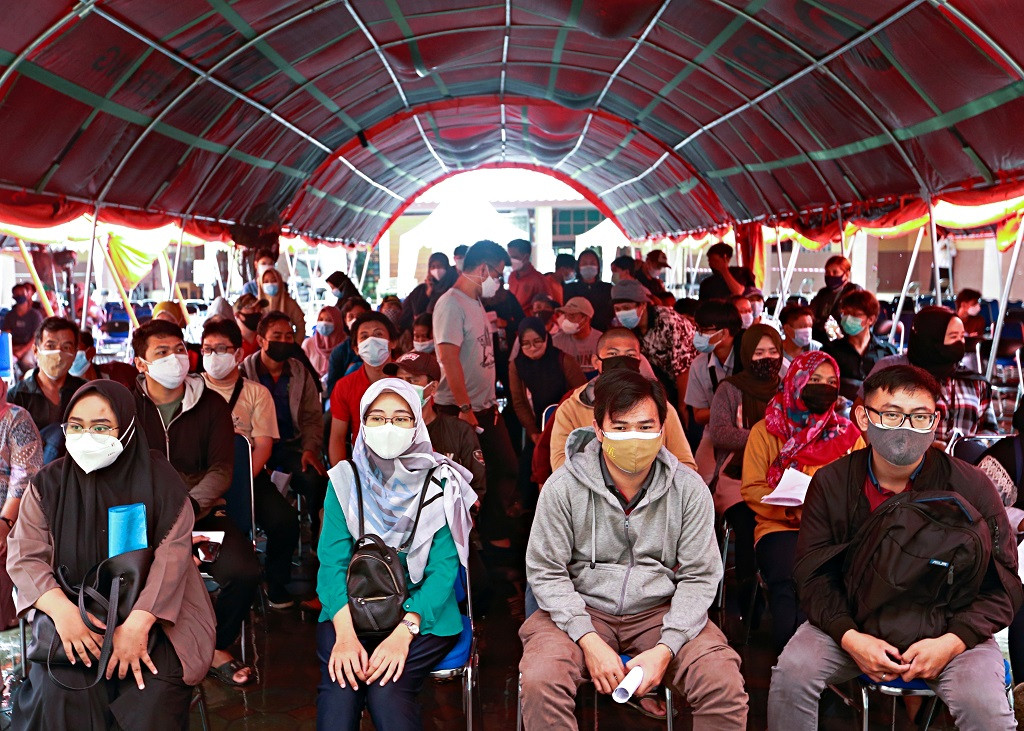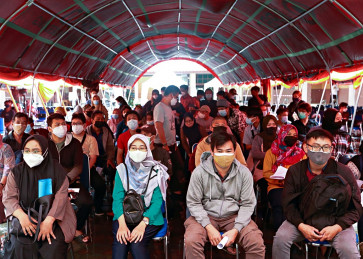Popular Reads
Top Results
Can't find what you're looking for?
View all search resultsPopular Reads
Top Results
Can't find what you're looking for?
View all search resultsProof of COVID-19 vaccination policy too soon, unfair: Experts
Experts have criticized the government's policy on proof of vaccination, deeming it "untimely" and "unfair" to the public because Indonesia is still struggling with a low vaccination rate.
Change text size
Gift Premium Articles
to Anyone
E
xperts have criticized the government's policy on proof of COVID-19 vaccination, deeming it "untimely" and "unfair" to the public because Indonesia is still struggling with a low vaccination rate.
The policy was introduced earlier this month in several major cities on Java island, and has since been expanded to other regions across the archipelago as the government eased more restrictions.
It requires people visiting shopping malls and sport venues to show a digital vaccination record via the government's mobile app PeduliLindungi.
Anyone traveling a long distance either by car, train, bus or airplane on the most populous islands of Java and Bali, and in regions imposing level 3 and 4 curbs -- the strictest in the four-tiered restriction system -- must provide a vaccination cards for their trip.
Workers in critical sectors such as export-oriented industries, energies and logistics should also show proof of vaccination before entering offices and factories, after the government allowed these companies to operate at full capacity. The government is currently arranging similar schemes to be implemented in other sectors.
Some regions such as Jakarta, which has fully inoculated 54 percent of its targeted population, has taken the policy further by requiring proof of vaccination to book hotels, visit tourist spots, use intracity public transportation and even to enter certain mosques.
Read also: Government eases restrictions in Greater Jakarta


















